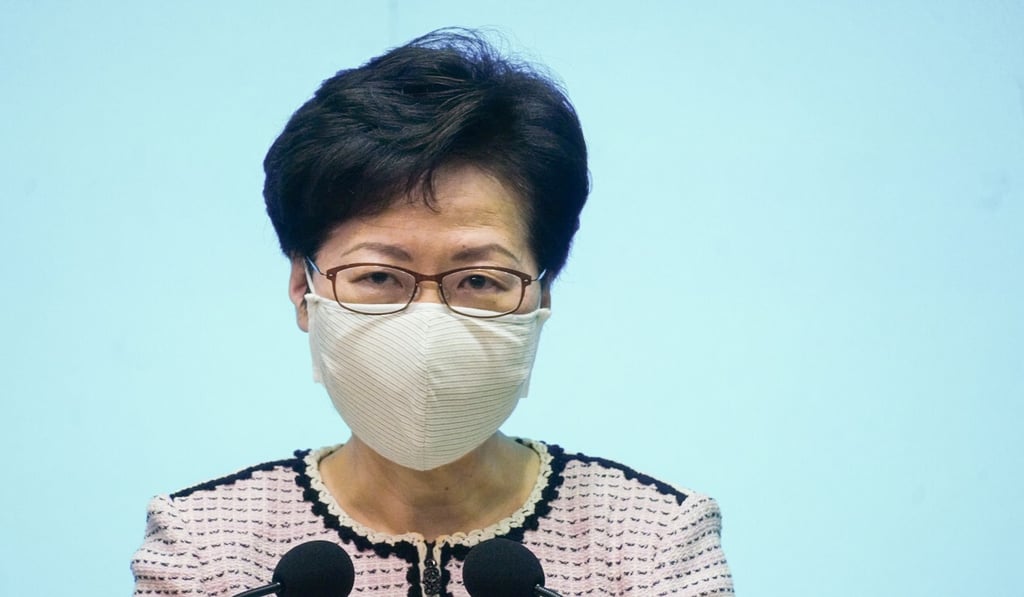Carrie Lam denies Hong Kong activist’s sedition arrest a threat to free speech, declines to address police tackling of 12-year-old girl
- Criticism of government officials alone not enough to warrant sedition charges, Lam says, while adding the age of the colonial-era law was irrelevant
- Asked if police overreacted in treatment of schoolgirl, Lam declines to ‘give opinion on the actual operation’ but says complaints will be investigated

Chief Executive Carrie Lam Cheng Yuet-ngor on Tuesday weighed in on Sunday’s controversial detainment of Tam Tak-chi, vice-chairman of the localist party People Power, for “uttering seditious words” by the police force’s new national security unit.
The arrest has raised concerns from legal experts, who said the use of the sedition charge – codified in 1938 under the Sedition Ordinance and incorporated into the city’s Crimes Ordinance in 1971 – represented a threat to Hong Kong’s freedom of speech, as it did not have the precision or human rights protections found in modern laws.

Speaking to the press ahead of a weekly meeting of the Executive Council, Lam was asked why the police would use a colonial-era law and if it put the city’s freedom of expression in jeopardy.